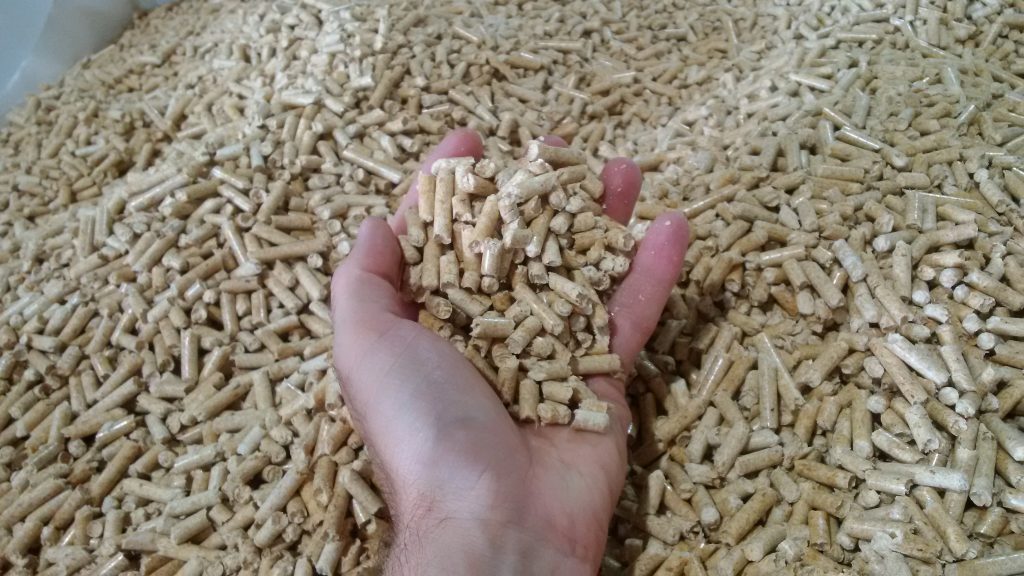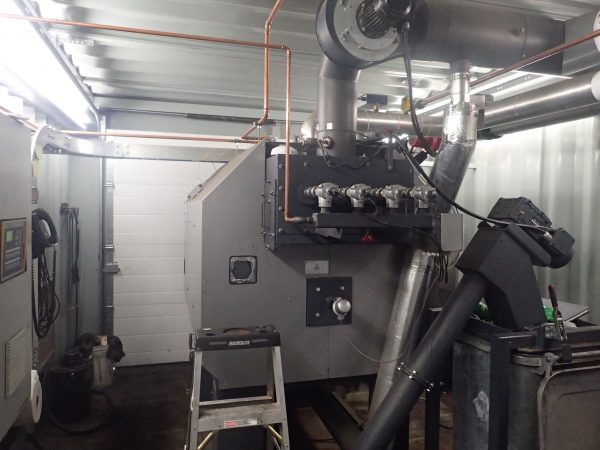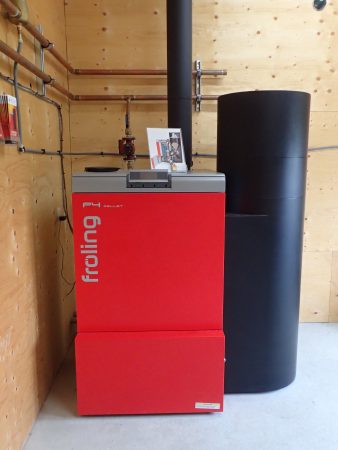
FPInnovations to host webinar series to increase awareness of bioheat
January 20, 2021
By FPInnovations
 Sustainable wood pellets used in modern bioheat systems. Photo courtesy FPInnovations.
Sustainable wood pellets used in modern bioheat systems. Photo courtesy FPInnovations. Heating costs in Canada are expensive and generate high amounts of greenhouse gases, especially for those living in rural and remote communities. Many individuals, businesses, and communities across Canada are turning to modern bioheat systems as a solution. Solid woody biofuels produced from sustainably managed Canadian forests can be used efficiently to meet space and hot water heating needs, cut costs, reduce emissions, and offer many other benefits. However, lack of awareness of bioheat technologies and their benefits are a barrier to uptake in Ontario.
To break this barrier, a new webinar series is being launched to increase awareness of bioheat among businesses, economic development corporations, Indigenous Communities, municipalities, as well as individuals in Ontario’s rural and remote communities.
Presenting the 411 on bioheat
The Solid Wood Bioheat Webinar Series will be hosted by bioheat specialists from FPInnovations, Natural Resources Canada (NRCan), and Ontario’s Ministry of Natural Resources (MNRF). The series, as well as details on the various webinars, are hosted on the Centre for Research and Innovation in the Bio-Economy (CRIBE) website. The first session will be held on Thursday, Feb. 4.
The webinar series will provide information about starting a bioheat project, explain the many benefits of bioheat, showcase technological advancements in biofuels and bioheat combustion systems, and will explore the potential for bioheat to contribute to local energy and community needs.
Industry speakers with first-hand knowledge of bioheat systems will share their experience with webinar participants. Participants will also hear from community leaders who have experience developing and successfully implementing bioheat projects. The content of the series will be based on the FPInnovations publication, A Solid Wood Bioheat Guide for Rural and Remote Communities in Ontario, which was released last year and was supported by NRCan and MNRF.
What are bioheat systems?
Modern bioheat systems are well-developed and highly engineered mechanical systems with sophisticated controls. These state-of-the-art systems produce heat by combusting (burning) sustainably sourced solid woody biofuels (i.e. conventional firewood, wood chips, wood briquettes, and wood pellets). They are ideal for providing space heat and domestic hot water for community buildings and businesses, as well as for private homes. The technology is widely used in Europe, Alaska, and the northeastern United States, and can be found across Canada.
Why heat with woody biomass?
There are many advantages to heating with woody biomass including environmental to socio-economic benefits. The reliability, efficiency, and versatility of modern bioheat systems allows for supplementation or even replacement of current fossil fuel or electric heating systems. Bioheat systems can use local, sustainably sourced, economical, and renewable solid woody biofuels to provide sustainable bioheat for a wide range of buildings. In Ontario, laws require that Crown forests be sustainably managed according to approved forest management plans. Plans that fall under Ontario’s forest management system aim to balance environmental, social, and economic considerations, and require harvested areas to be regenerated. This means that carbon emitted during the generation of bioheat from solid woody biofuels is recaptured by the growing forest. This makes bioheat systems a green, low-carbon choice for residential, commercial, and industrial heating. In modern bioheat systems, emissions from particles and volatile compounds are also low and on par with fossil fuel heating systems. From an economic perspective, bioheat is easily justified. These systems offer a more affordable and stable price option when compared to electricity and many fossil fuel systems.
Interested in learning more about bioheat?
To learn more about our webinar series, the speaker lineup, or to find registration details, please visit the CRIBE website.
Webinars will be held over six, one-hour weekly sessions between February 4 and March 11:
- Session 1: Why Choose Bioheat? Thursday, February 4: 11:00 a.m. to 12:00 p.m. EST
- Session 2: Solid Woody Biofuels Thursday, February 11: 11:00 a.m. to 12:00 p.m. EST
- Session 3: Bioheat Combustion Systems Thursday, February 18: 11:00 a.m. to 12:00 p.m. EST
- Session 4: Project Planning Thursday, February 25: 11:00 am to 12:00 p.m. EST
- Session 5: Ontario Success Stories Thursday, March 4: 11:00 a.m. to 12:00 p.m. EST
- Session 6: Canadian Success Stories Thursday, March 11: 11:00 a.m. to 12:15 p.m. EST
For questions about this series, please contact Glen Prevost at glen.prevost@fpinnovations.ca.
Print this page

